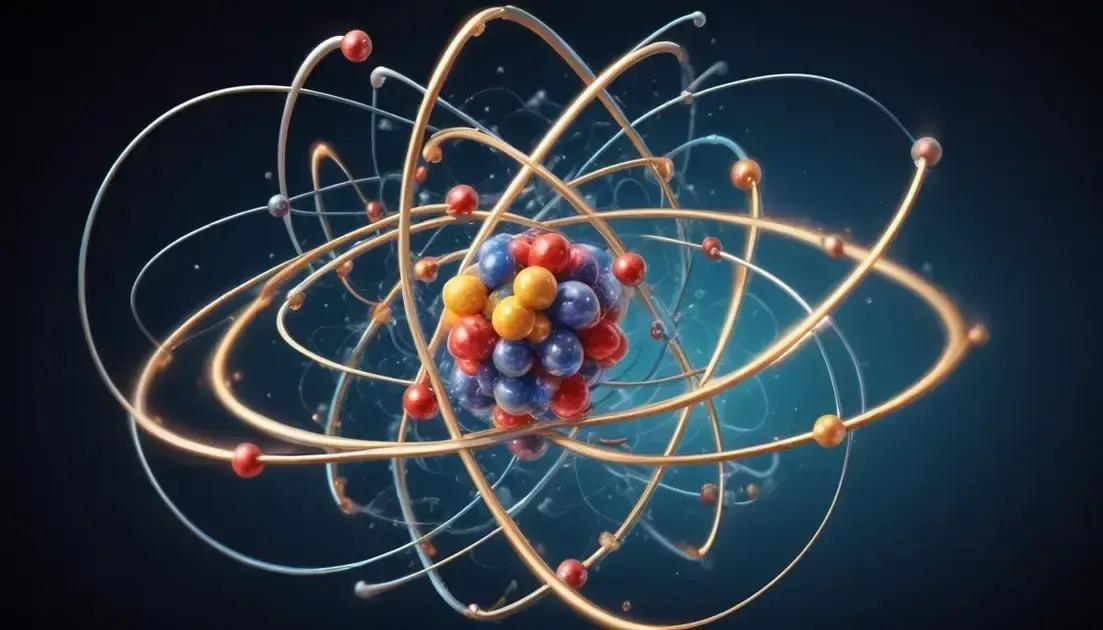
The Electron: The Beginning of the Quantum Age
The electron, discovered by J.J. Thomson in 1897, is a fundamental particle that has transformed our understanding of matter and modern physics. Its negative charge and role in atomic structure have paved the way for advancements in technologies such as electronics and quantum mechanics. Electrons are crucial for chemical bonding, allowing the creation of various substances. Their study continues to unlock new scientific discoveries, making the electron a central piece in the evolution of technology and the future of physics.
Electron – a name that’s become synonymous with the building blocks of our universe. But do you really know what it represents? Let’s dive in and explore its phenomenal journey!
What is an Electron?
An electron is one of the tiny particles that make up an atom. Atoms are the building blocks of everything around us. Electrons have a negative electric charge, which means they can interact in interesting ways with other particles.
Electrons are much smaller than protons and neutrons, which are the other components of atoms. They move around the nucleus, which is the center of the atom, in areas called orbitals. This movement is a bit like how planets orbit the sun.
One cool thing about electrons is that they are essential for electricity. When electrons move through a wire, they carry electrical energy, which powers our homes and devices. Electrons are also important in chemical reactions, helping atoms bond together to create different substances.
Understanding electrons helps scientists explore the fundamental nature of the universe. They study how electrons behave in different situations, which leads to new technologies and discoveries.
In summary, electrons are tiny but mighty particles that play a big role in how everything works at a fundamental level.
The Discovery by J.J. Thomson
In 1897, physicist J.J. Thomson made a groundbreaking discovery. He found the electron while studying cathode rays. This discovery changed how we view atoms and matter.
Thomson used a device called a cathode ray tube. This tube allowed him to see the rays and measure their properties. He noticed that these rays were made of small particles. These particles were later named electrons.
Thomson’s experiments revealed that electrons are negatively charged. This means they can be attracted to positive charges and repel from negative ones. His work showed that atoms are not indivisible as previously thought.
His findings led to the development of the “plum pudding” model of the atom. In this model, electrons float in a positive “soup.” This idea changed the scientific community’s understanding of atomic structure.
J.J. Thomson’s discovery of the electron was a key moment in science. It paved the way for modern physics and opened new fields of study in atom and energy research.
Impact on Modern Physics
The discovery of the electron has had a huge impact on modern physics. It changed how scientists understand atoms and matter. Before this, atoms were thought to be solid and indivisible.
With the electron’s discovery, new theories emerged. Scientists realized atoms had parts. This led to the development of quantum mechanics. Quantum mechanics explores how tiny particles behave in strange ways.
Electrons play a key role in chemical reactions. They help form bonds between atoms. This allows for the creation of different substances and compounds. Understanding electron behavior helps us explain why elements interact the way they do.
In electronics, the electron is vital. It’s the basis for how devices like computers and smartphones work. From semiconductors to transistors, electrons are essential for technology.
The study of electrons has also affected fields like energy. Understanding electrons helps improve batteries and renewable energy technologies. This knowledge is crucial for building a sustainable future.
In summary, the impact of the electron on modern physics is profound. It revolutionized our understanding of the universe and paved the way for many advancements.
Conclusion: The Legacy of the Electron
The invention of the electron has left a lasting legacy in science. It changed our view of the physical world and shifted our understanding of matter. New ideas sprouted from this discovery, leading to exciting advancements.
Electrons are essential to modern technology. From smartphones to computers, they power our daily lives. Without electrons, our tech-driven world wouldn’t be the same.
In science, the study of electrons opened doors to fields like quantum physics. This area of study helps explain how tiny particles interact. Researchers continue to explore these concepts, uncovering new knowledge.
Moreover, the role of electrons in chemistry can’t be overstated. They enable atoms to bond, forming everything around us. Understanding this bonding helps scientists create new materials.
As we look to the future, the significance of the electron will grow. Scientists will keep discovering its secrets and applying that knowledge for progress. In many ways, the electron is not just a particle; it’s a gateway to the future of science and technology.
Conclusion
In conclusion, the discovery of the electron has had a profound effect on science and technology. Understanding electrons changed our view of atoms and matter. They’re crucial for everything from smartphones to medical devices.
As we continue to study electrons, we find new ways to improve technology. Researchers are unlocking secrets that will lead to innovative solutions for the future. The impact of the electron is far-reaching, influencing chemistry, physics, and beyond.
By recognizing the importance of electrons, we appreciate how small particles can shape our lives. They play a vital role in everything we rely on today. Embracing this knowledge will inspire further discoveries that enhance our understanding of the universe.


